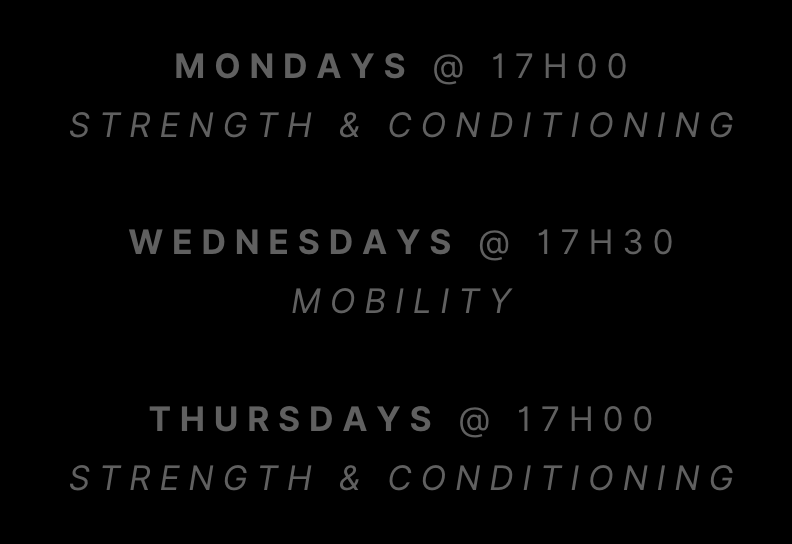
How many times a week should a runner strength train?
How often should I do strength training? If you are a runner and your goal is to improve your running performance, you should be doing strength training twice a week. Once a week is better than nothing, however, research and practice has shown that optimal strength training frequency is 2-3 times a week.
How do I build strength for running?
Warm-up with a five- to 10-minute jog, then run one to three miles (depending on your fitness), jogging the turns slowly and running the straights as a stride – gradually building your pace to 80% to 85% of your maximum speed at the 75-meter mark, then gradually decelerating to the turn.
What is a strength run?
Strength Runs These are primarily designed to improve your ability to handle the hills as well as to increase overall leg strength to make the flat parts easier to handle. They are also considered speed work in disguise since hills can raise your heart rate to the level achieved during a fast workout.
Can you do running and strength training?
In general, runners who lift weights have better running form and are less prone to injury, because their bodies are stronger. This is largely because strength training improves your run form. Also, putting more muscle on your bones can help lessen the impact of your running and give your bones a break.
How often should you run a week?
Most experts agree that beginners should plan to run three to four days per week with at least one day of complete rest and optional cross-training on the other days. The duration of your initial run/walk sessions should be 20-30 minutes, increasing the percentage of time spent running in subsequent workouts.
Should I run everyday?
Although running is a beneficial activity to do frequently, running every day can increase your risk of injuries like stress fractures and shin splints. Instead, aim to run three to five days a week and incorporate rest days and cross-training like biking or swimming.
Are push ups good for runners?
How can push-ups help you improve your running performance? It's an upper-body strength exercise that requires core stability, which is essential for runners. A strong core allows you to keep good posture and running form during your run. Push-ups require full-body control, a skill that translates directly to running.
Do squats help running?
Squats for running are one of the best exercises you can do to improve, making you stronger, faster, more efficient, less prone to injury and enabling you to recover quicker. Squats help runners because they flex, activate and strengthen your leg, hip and buttock muscles and joints which are all essential for running.
Can you be jacked and run a marathon?
Absolutely! I'd dare you to look at most toned runner legs and say that it doesn't build some muscle. Distance running can help to build lean quads and calves, but is not likely to help you build larger muscles.
Does jogging make you weaker?
Running does not hinder strength training, but do not use it instead of strength training. While running builds lower-body strength, it does not help you build your upper body. Combine running and strength training to achieve the best strength gains.
Do weightlifters run?
Runners lift weights to gain strength; weightlifters run to increase endurance and lose body fat. Most trainers in both areas recommend a combination of running and lifting.
Should I lift and run on the same day?
Your run should be at low-to-moderate intensity. If your strength session includes normal-speed concentric and eccentric moves, it's best to wait nine hours before going for a run. Your run should be at low-to-moderate intensity. Avoid running at a high intensity if you're lifting on the same day.
Who wrote the science of running?
Chris Napier quite literally wrote the book on the Science of Running. He is a professor of Physical Therapy at the University of British Columbia in Vancouver as well as a practicing physiother…
Who won the Leadville 100?
Clare Gallagher burst onto the ultrarunning scene with her first attempt at a 100-mile race, the Leadville 100, which she won despite being brand new to the distance. She followed up with wi…
Who is Caitlin Alexander?
Dr. Caitlin Alexander is a physical therapist at Build Sports Performance Lab & Physical Therapy in Boulder, Colorado with a certification in Applied Functional Science. She's a certified triathlon coach, running coach, and has experience working with elite-level athletes.
How high is Jonathan Levitt?
Today, we're talking to Jonathan Levitt who took his high altitude training seriously. Not only is he paying attention to how he performs at 9,600 feet, he's also using blood tests to track important biomarkers that indicate how his body adapts.
Episodes
233. How to Set Massive PR’s in Your 40’s (a behind-the-scenes coaching call)
Popular Podcasts
If you can never get enough true crime... Congratulations, you’ve found your people.
